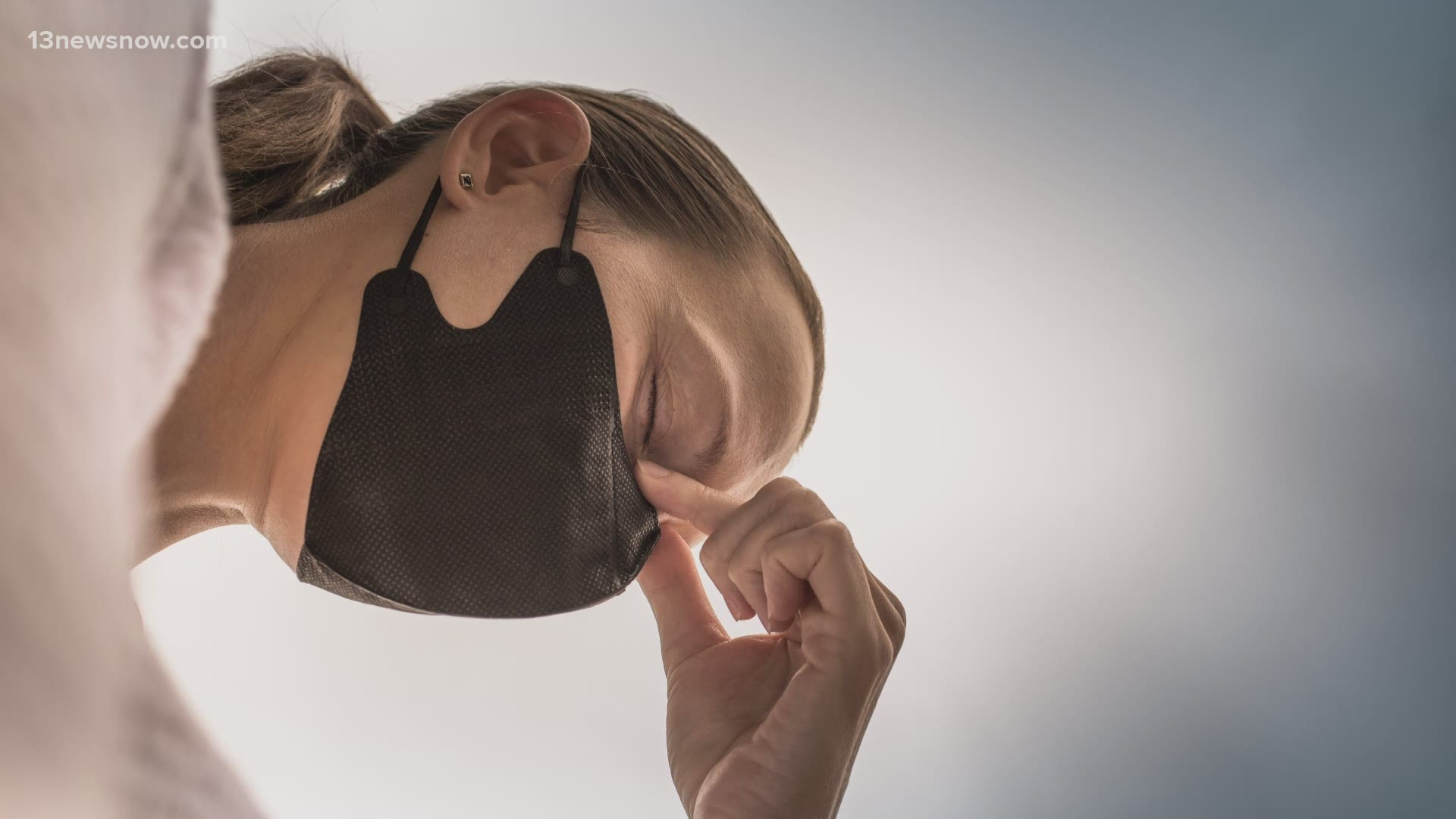VIRGINIA BEACH, Va. — Most of us have heard, probably over and over, the common symptoms associated with COVID-19: coughing, shortness of breath, a loss of taste or smell, a fever, and a sore throat.
What we don’t hear about that often are the long-term symptoms of the virus.
Even after recovering and then testing negative for the virus, about 10 percent of COVID-19 patients become what’s known as "long haulers," according to researchers at UC Davis Health.
Weeks after testing positive back in September, Jennifer Michalski in Virginia Beach continued to deal with strange symptoms. At the time, she didn’t know what long haulers were.
“I cannot feel... there’s something wrong with me, I’m not normal anymore,” said Michalski in October.
The symptoms Michalski continued to experience -- headaches, brain fog, and dizziness -- align with what many long-haul patients have reported.
We’re still learning more about these long-term effects, so it’s hard to pinpoint exactly what’s happening.
One common theory about these patients is that the virus may remain in their bodies in some small form or their immune systems are reacting to the virus despite the infection passing.
Unfortunately, there isn’t a clear answer when it comes to treating long haulers, but we do know it can affect old and young, even generally healthy people who once tested positive for the virus.

